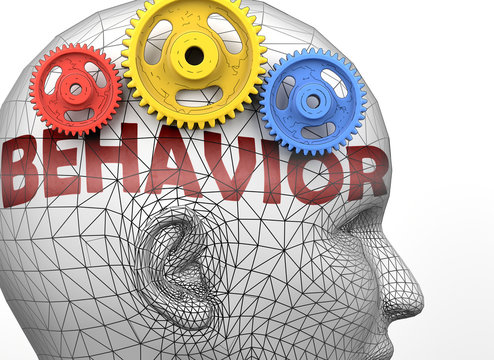From Ego to Empathy and Everything In Between

Human behavior is complex, influenced by various psychological, social, and environmental factors. From interactions with others to self-perception, our behaviors shape our experiences and relationships. In this blog on omeraftab.com, we’ll explore some common behavioral tendencies, their characteristics, and their impacts.
Ego-Centric Behavior
Ego-centric behavior focuses on oneself, often at others’ expense. Marked by self-centeredness, a need for control, and difficulty accepting criticism, ego-centric individuals prioritize their own needs and desires. While a healthy ego drives ambition and self-confidence, an overbearing ego strains relationship and hinders collaboration. Ego-centric behavior can lead to conflicts and a lack of empathy, creating an isolating environment.
People-Pleasing Behavior
People-pleasing behavior involves striving to make others happy, often at one’s own expense. People-pleasers struggle to say no, seek approval, and fear rejection. They avoid conflict and ensure everyone is satisfied. This behavior can lead to burnout and resentment. People-pleasers may neglect their well-being, causing stress and dissatisfaction.
Assertive Behavior
Assertive behavior communicates needs and desires confidently and respectfully. Individuals use clear communication, respect others’ boundaries, and exhibit self-confidence. They balance their own needs with consideration for others. Assertiveness fosters healthy relationships and effective problem-solving. It promotes mutual respect and understanding, helping to resolve conflicts constructively.
Passive Behavior
Passive behavior avoids confrontation and tends to yield to others. Individuals are quiet, hesitant to express opinions, and may have low self-esteem. They prioritize others’ needs over their own to avoid conflict. This behavior results in unmet needs and lack of personal growth. Passivity often leads to frustration and a sense of powerlessness.
Aggressive Behavior
Aggressive behavior attempts to dominate or intimidate others to achieve one’s own goals. This behavior is characterized by hostility, impatience, and a disregard for others’ feelings. Aggressive individuals often use threats and forceful language. Aggression creates conflict and fear in relationships. It damages trust and leads to an unhealthy, toxic environment.
Passive-Aggressive Behavior
Passive-aggressive behavior indirectly expresses negative feelings instead of addressing them openly. This behavior includes sarcasm, backhanded compliments, and procrastination. Passive-aggressive individuals avoid direct confrontation but express dissatisfaction subtly. It leads to misunderstandings and unresolved conflicts. This behavior undermines trust and hampers effective communication.
Empathetic Behavior
Empathetic behavior shows understanding and concern for others’ feelings and experiences. Individuals practice active listening, compassion, and supportiveness. They strive to understand others’ perspectives. Empathy fosters strong, trusting relationships. It enhances emotional connections and promotes a supportive environment.
Defensive Behavior
Defensive behavior protects oneself from perceived threats or criticism. This often justify their actions, blame others, and deny responsibility. They react to feedback with hostility or withdrawal. This behavior prevents personal growth and strains relationships. It creates barriers to open communication and collaboration.
Independent Behavior
Independent behavior values self-sufficiency and autonomy. This make decisions without reliance on others and have confidence in their abilities. They seek to control their own destiny. While promoting self-reliance, excessive independence can lead to isolation. Balancing independence with collaboration is key to maintaining healthy relationships.
Collaborative Behavior
Collaborative behavior works well with others to achieve common goals. This behavior includes teamwork, open-mindedness, and shared responsibility. Collaborative individuals value others’ contributions and work towards collective success. Collaboration enhances productivity and fosters positive working relationships. It encourages innovation and problem-solving through diverse perspectives.
Narcissistic Behavior
Narcissistic behavior involves an inflated sense of self-importance and a deep need for admiration. Narcissists lack empathy, feel entitled, and often exploit others. They have an exaggerated sense of their own abilities and achievements. Narcissism often leads to toxic relationships and workplace environments. It undermines trust and respect, causing significant interpersonal conflicts.
Altruistic Behavior
Altruistic behavior is selflessly concerned with the well-being of others. Altruists exhibit generosity, kindness, and a desire to help others. They often volunteer and support charitable causes. Altruism creates a positive impact on community and society. However, neglecting personal needs can lead to burnout.
Understanding these common behavioral tendencies is crucial for personal development and improving interactions. By recognizing and adjusting our behaviors, we can foster better communication, build stronger relationships, and enhance our well-being. Visit omeraftab.com for more insights on human behavior and personal development. Awareness and intentionality in our actions can lead to more fulfilling and productive lives. Explore more at omeraftab.com and discover how to navigate the complexities of human behavior effectively.